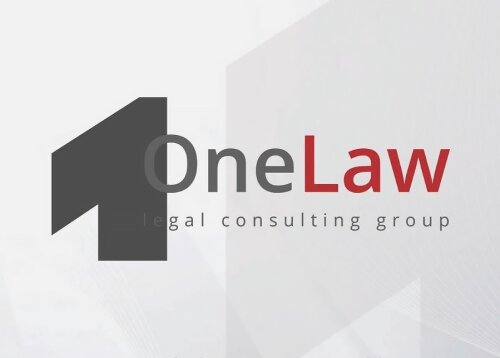Best Energy Regulatory Law Lawyers in Yekaterinburg
Share your needs with us, get contacted by law firms.
Free. Takes 2 min.
List of the best lawyers in Yekaterinburg, Russia
About Energy Regulatory Law in Yekaterinburg, Russia
Energy Regulatory Law in Yekaterinburg, Russia, governs the production, distribution, sale, and consumption of energy resources such as electricity, gas, oil, and heat. This field of law also covers regulatory measures related to the development and operation of energy facilities, compliance with safety and environmental requirements, and the protection of consumer interests. The sector is highly regulated, reflecting both federal Russian policies and local legislation specific to the Sverdlovsk region, of which Yekaterinburg is the administrative center. As the city is a major industrial hub, energy regulation is critical for both domestic and commercial users.
Why You May Need a Lawyer
People and businesses may require legal assistance in Energy Regulatory Law for several reasons. Common situations include:
- Resolving disputes between energy consumers and suppliers regarding contracts, tariffs, outages, or service quality
- Assisting businesses in obtaining licenses or permits to generate, transmit, or distribute energy resources
- Navigating complex regulatory requirements for launching energy projects or upgrading existing infrastructure
- Addressing compliance issues, inspections, or alleged regulatory violations from government authorities
- Handling land use and environmental compliance matters in relation to energy projects
- Negotiating power purchase agreements or other long-term supply contracts
- Representing clients in administrative proceedings or disputes before energy regulators and courts
As regulations can change frequently and involve multiple authorities, having a knowledgeable lawyer can help protect both your legal and financial interests.
Local Laws Overview
Yekaterinburg follows the Russian Federation’s legislative framework on energy, with notable influence from local administrative practice. Key legal aspects include:
- Federal Laws: Main statutes include the Law on the Electric Power Industry, the Law on Gas Supply, and environmental regulations related to energy generation and supply.
- Licensing and Permits: Energy companies must secure appropriate licenses from federal and regional authorities. The process is strictly regulated and involves compliance checks.
- Tariff Regulation: The determination and approval of energy pricing (tariffs) are overseen by local branches of the Federal Antimonopoly Service and the Regional Energy Commission.
- Consumer Protection: Both individual consumers and entities are protected by rules prohibiting unfair pricing, unjustified service interruptions, or low service quality.
- Dispute Resolution: Disputes related to energy supply can be resolved through the courts or via administrative procedures with the support of legal representatives.
- Environmental and Safety Standards: Compliance with national and local environmental laws is mandatory for all energy activities, especially those impacting air, water, or land.
It is crucial to remember that both local and federal authorities play a role in enforcement and oversight. Businesses and residents must stay informed about both levels of regulation.
Frequently Asked Questions
What is the role of the regulatory body in Yekaterinburg’s energy sector?
The energy regulatory body monitors compliance, approves tariffs, issues permits, and investigates violations related to energy production and supply. It often coordinates with federal authorities to enforce the law.
As a business, how can I obtain a license to operate in the energy sector?
You must apply to the relevant federal and regional authorities, submit detailed documentation, pass various inspections, and comply with technical and environmental standards before being granted a license.
Can an energy supplier disconnect my property without warning?
Suppliers cannot disconnect energy without valid reasons, such as significant unpaid bills. Even then, they must provide written notice and follow legal procedures to protect consumer rights.
What should I do if I have a dispute over my electricity bill?
First, contact your supplier for clarification. If the dispute is not resolved, you can submit a complaint to the regional energy commission or initiate a claim in court with the assistance of a lawyer.
Are there special regulations for renewable energy projects in Yekaterinburg?
Yes, while general energy laws apply, there are additional incentives and regulations designed to promote the use of renewable energy sources, including easier permitting for certain projects and subsidies.
How are energy tariffs for residential consumers determined?
Tariffs are set and approved by the regional regulatory authority based on a set formula that considers production costs, infrastructure needs, and social priorities. Any changes must be publicly justified.
Can foreign investors participate in the energy sector in Yekaterinburg?
Yes, but foreign participation is subject to additional scrutiny and regulatory requirements. Certain strategic energy assets may be restricted or require government approval for foreign ownership.
What environmental considerations apply to energy projects?
Energy projects must comply with strict environmental standards, including environmental impact assessments, permits for emissions, and measures to protect local ecosystems.
How long does it take to resolve an energy dispute in court?
The duration depends on the complexity of the case. Simple disputes may take a few months, while more complicated matters, especially those involving technical or expert assessment, can take longer.
Is it necessary to have a lawyer for regulatory compliance matters?
While not strictly required by law, it is highly recommended given the complexity of regulations and the potential risks involved. A lawyer can help ensure full compliance and defend your interests if an issue arises.
Additional Resources
If you need more guidance or wish to stay informed about Energy Regulatory Law developments in Yekaterinburg, consider reaching out to the following:
- Regional Energy Commission of Sverdlovsk Oblast
- Federal Antimonopoly Service - Sverdlovsk Branch
- Yekaterinburg Chamber of Commerce - Energy Division
- Russian Ministry of Energy (for federal regulations and updates)
- Ombudsman for Consumer Rights in Energy Sector
- Profile law firms specializing in energy and natural resources law in Yekaterinburg
- Public information centers at major energy suppliers and grid companies
Next Steps
If you believe you need legal assistance regarding Energy Regulatory Law in Yekaterinburg:
- Gather all relevant documents pertaining to your concern, including contracts, correspondence, notices, and regulatory filings.
- Contact a local law firm or legal consultant that specializes in energy law for an initial consultation.
- Prepare a list of specific questions and issues you want to discuss to maximize the benefit of your consultation.
- If you are a business entity, assign a knowledgeable employee to liaise with your legal counsel and coordinate internal information gathering.
- Follow the lawyer’s recommendations regarding regulatory filings, responses to authorities, or dispute resolution strategies.
Prompt action and expert assistance can help prevent further complications and ensure your interests are protected under the law.
Lawzana helps you find the best lawyers and law firms in Yekaterinburg through a curated and pre-screened list of qualified legal professionals. Our platform offers rankings and detailed profiles of attorneys and law firms, allowing you to compare based on practice areas, including Energy Regulatory Law, experience, and client feedback.
Each profile includes a description of the firm's areas of practice, client reviews, team members and partners, year of establishment, spoken languages, office locations, contact information, social media presence, and any published articles or resources. Most firms on our platform speak English and are experienced in both local and international legal matters.
Get a quote from top-rated law firms in Yekaterinburg, Russia — quickly, securely, and without unnecessary hassle.
Disclaimer:
The information provided on this page is for general informational purposes only and does not constitute legal advice. While we strive to ensure the accuracy and relevance of the content, legal information may change over time, and interpretations of the law can vary. You should always consult with a qualified legal professional for advice specific to your situation.
We disclaim all liability for actions taken or not taken based on the content of this page. If you believe any information is incorrect or outdated, please contact us, and we will review and update it where appropriate.










